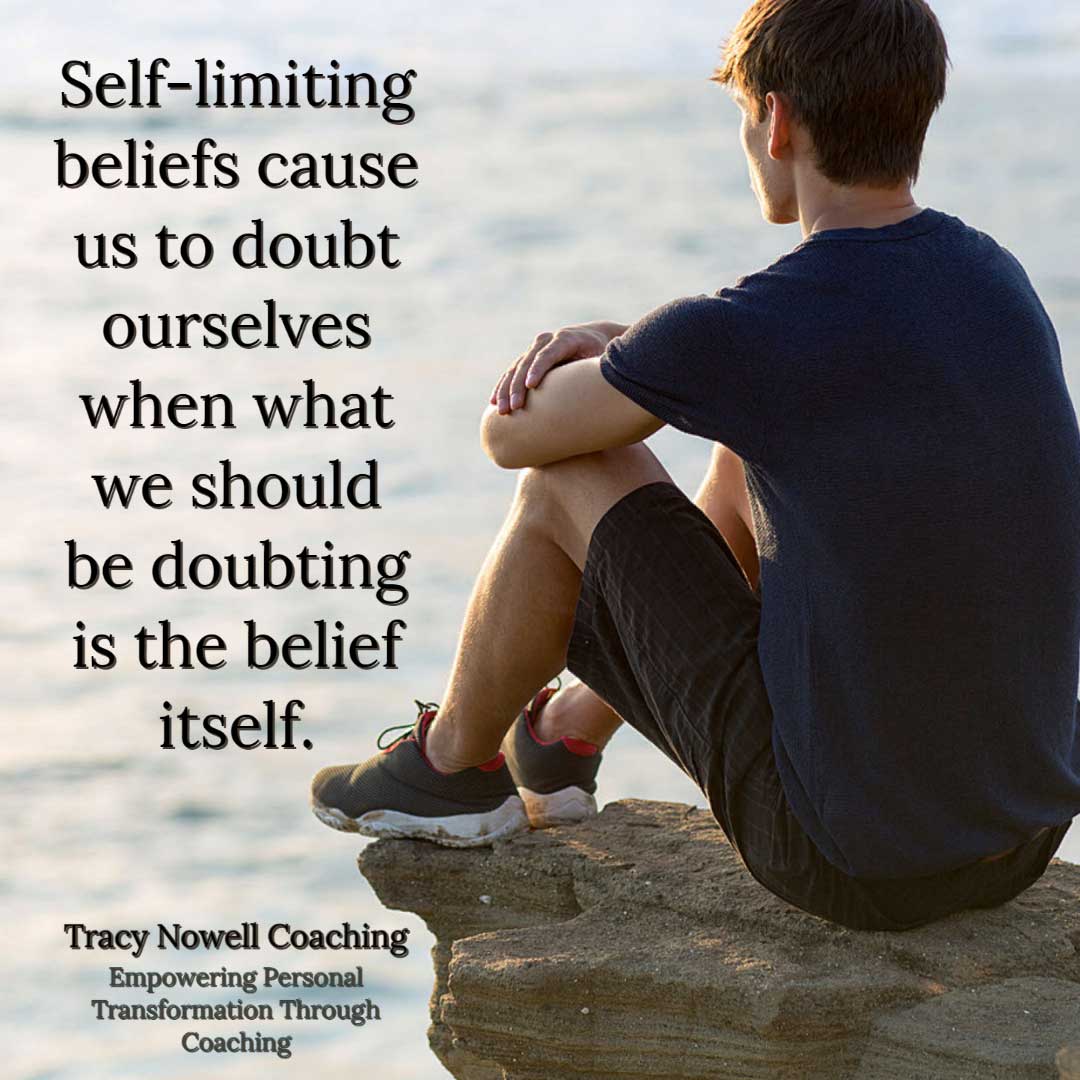Self-limiting beliefs

Self-limiting beliefs cause us to doubt ourselves when what we should be doubting is the belief itself.
Have you ever considered that YOU might be the barrier to achieving your goals and the life you envision?
Maybe others have noticed and mentioned specific areas that they believe are hindering your growth or advancement or negatively impacting you. However, you deny, dismiss or discount their input.
Or you may even, on your own, become aware of a recurring theme or pattern in your thinking or behavior that needs to change, but you can't seem to address it.
Or you decide to try something new or pursue a different path and find it impossible to venture outside your comfort zone.
Or maybe you consistently settle for less while something inside you screams for more, and you cannot figure out why this happens.
If this sounds familiar, you might be the victim of self-limiting beliefs. These beliefs are deep-seated, often unconscious perceptions or assumptions about ourselves, others, situations, issues or the world around us. They develop as we mature and, over time, become internalized and accepted as truth from our perspective, whether knowingly or unknowingly. We may acquire these beliefs from those we most respect or learn from, like our parents, siblings, teachers or coaches, or our educational, work or life experiences. However, when these beliefs are, in fact, untruths, they become self-limiting and inhibit our ability to think, act and interact in our best interests or the best interests of others. They create a barrier to growth, change and relationships while producing a by-product of doubt, negativity, frustration, anxiety or confusion as our belief in ourselves and our abilities slowly diminish.
Examples might be –
- When someone grows up hearing "You'll never amount to anything" or "You just can't do anything right."
- Or you learn to think, " I am not (will never be) good enough, smart enough or experienced enough," or "I have (need) to be perfect."
- Or life leads you to believe, "I'll probably fail,'" "It's too risky," "I am too old or young to do that," or "I can't or don't have (feel free to insert your own words)."
From coaching, I learned and experienced that most clients with self-limiting beliefs focus on the symptoms of the problem, meaning the consequences or impact of events, interactions or situations that trigger the surfacing of these beliefs. Examples could be emotional responses that lead to meltdowns, arguments or conflict. Or the person withdraws into their cocoon or returns to their comfort zone, isolating themselves from perceived harm, pain or embarrassment. Blame or fault is either internalized or projected onto others or the situation or event itself. And by failing to identify the core issue and its root cause – the self-limiting belief remains intact and operational, just waiting to be triggered again.
So how do people overcome self-limiting beliefs?
- First, you must open your mind to reflectively consider whether a self-limiting belief exists within your operating system. What were you thinking or believing that led to feeling or reacting in a certain way? What were you saying to yourself? Or, what were you hearing in your head, and who or what was the source?
- Second, once identified, challenge the validity of the belief in an objective, reality-based examination. Is the thought or belief based on truth, or is it an untruth? Is the thought or belief rooted in rational or irrational thinking?
- Third, if you determine the belief is an untruth, this newly uncovered reality requires rejection and replacement with the truth. It sounds pretty simple, but you may find this easier said than done.
- Fourth, when the self-limiting belief surfaces in the future, take action based on the truth, even if it is uncomfortable and requires stepping outside your comfort zone or taking a perceived risk. Try looking at it as an experiment and use your curiosity to spur you on. Remember, you have already acknowledged the self-limiting belief as an untruth.
- Fifth, pay attention to the results and compare them to the prior consequences of your self-limiting belief. Compared with the harmful effects of an untruth, positive results or progress should begin to diminish the power of the self-limiting belief over your life.
So, in the future, when doubting yourself, try figuring out if a self-limiting belief is driving your doubt and then refocus and cast your doubt on the belief instead. It will likely be hard to do on your own, but with help, you can find the truth to set you free – to change, grow and live life to the fullest.